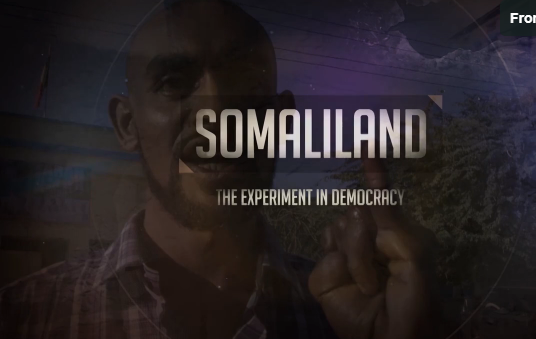Most of the stories you hear out of the Horn Of Africa are overwhelmingly negative. But in Somaliland, a state battling for recognition, they have attempted to create something hopeful – a blueprint for the region: a democratic state. Screened as part of ConIFA’s film festival, Somaliland: An Experiment in Democracy covers the 2012 elections.
Despite being surrounded by a plethora of states where democracy makes the government shudder, Somaliland was founded as one in 1991, when the central government in Somalia collapsed. It covers the land of the former British Somaliland colony, which merged with Italian Somaliland in 1960. Hargeisa is its capital and this documentary is filmed there. We meet Ali, the head of the electoral commission, in charge of distributing ballots and ensuring the integrity of the elections. There’s a travel ban to prevent voter fraud, as the infrastructure for voter registration no longer exists, and the department controls who gets plates to allow them to bypass this rule – mostly international observers, electoral commision members, journalists etc. The elections in Somaliland break in a 10-year cycle. They are essentially local elections, but the top three parties will be classed as constitutional parties, allowing them to run for the presidency.
Sideways Films speak to people on the ground, international observers and political leaders about their hopes for the fledgling state, which is without any international recognition.
As one voter explains, democracy is part of Somaliland culture and even tribal politics had a fair deal of democracy.Despite all the hope and the fact that it is the seventh democratic election in the state, the election is not smooth. Ali has a tense several days when 31 number plates go missing and the security at the commision abandon their posts, stations run out of ballot papers, and there’s controversy over the results of the vote.Somaliland’s experiment in democracy may be closer to a success than a failure, but there is some way to go yet. This documentary shows that very well, explaining how the balance is maintained, with the constant threat of democracy breaking, and the usual “failed state” rhetoric always close to being bandied about.
The documentary is a real eye-opener into how to run and maintain a free and fair election – something we have a tendency to take for granted in the West, although my one criticism would be that it does not delve into everything in very much detail. We don’t know what the parties really stand for or the effects of the democratic experiment on daily lives.
Despite that, it does help give a hopeful view of the country and the region and shows a side to it we rarely see.
By Gursimran Hans
![]()






































